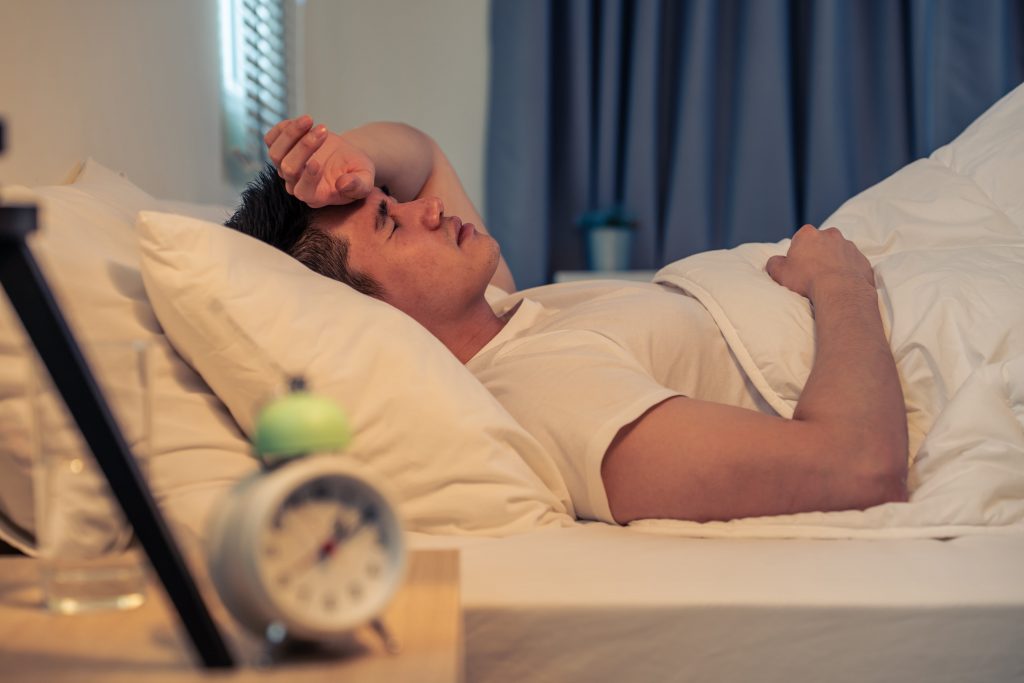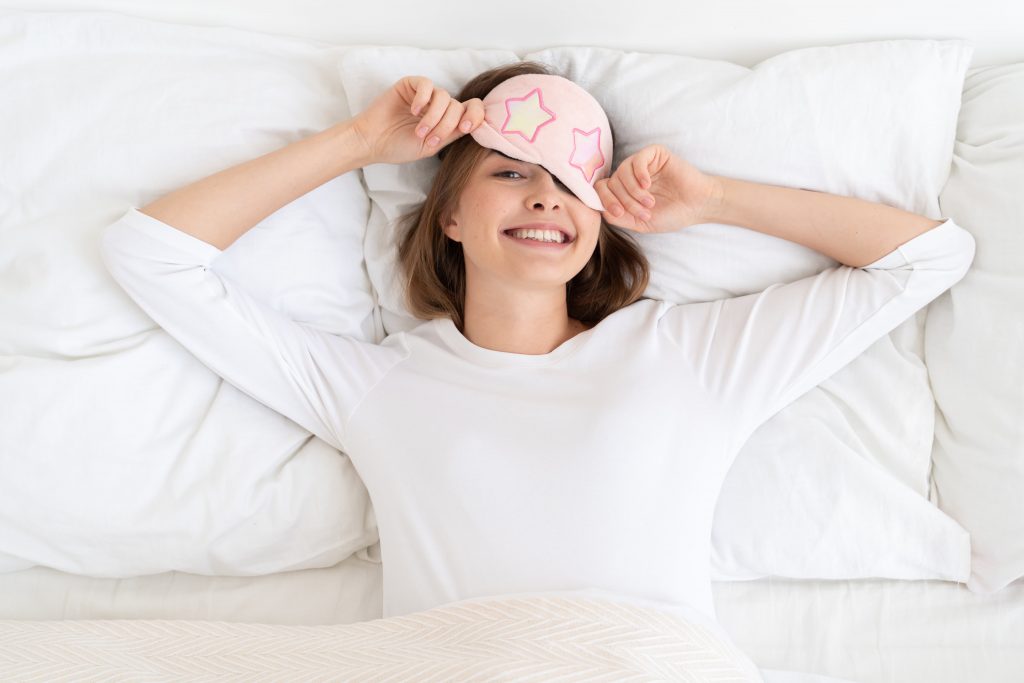
It’s important for our health and well-being to get enough sleep. Our bodies heal and feel better after sleep. It is also important for our mental health because it helps us control our feelings and think more clearly. Sleep also helps our immune systems work better, which helps us avoid getting sick. On the other hand, not getting enough sleep can hurt our health, like making us more likely to get heart disease and become overweight. Setting up good sleep habits and sticking to a regular sleep routine are important ways to make sleep a priority. This means making your surroundings conducive to sleep, staying away from electronics before bed, and learning how to relax. We can improve our health and well-being, both physically and mentally, by making sleep a priority.
1. Establish a Routine for Going to Bed and Waking Up
Setting a regular time to go to bed and wake up is important for staying on a regular sleep plan and getting better sleep. When we have a consistent sleep schedule, our body’s internal clock becomes regulated, making it easier to fall asleep and wake up at the desired times.
To have a good sleep routine, go to bed and wake up the same time every day, even on weekends. It’s possible to mess up your sleep routine if you stay up late or sleep in.
Having a routine before bed can help our bodies know it’s time to sleep. This can be done by doing things like reading, taking a bath, or learning how to relax.
It’s also important to stay away from electronics and activities that will wake you up an hour before bed. Electronic gadgets give off blue light that can stop the production of melatonin, a hormone that controls sleep.

2. Reduce Exposure to Blue Light in the Evening
Limiting your exposure to blue light in the evening is very important for getting a good night’s sleep. Electronic devices like computers, smartphones, and tablets give off blue light, which can make it hard to fall asleep.
Melatonin is a hormone that helps control our sleep-wake cycle. Blue light stops our bodies from making it. When we are exposed to blue light at night, it stops our bodies from making melatonin naturally. This makes it hard to fall asleep and stay asleep all night.
People who want to sleep better should limit their screen time at least 30 minutes before bed. Instead of looking through our phones or watching TV, doing something relaxing like reading a book, meditating, or taking a warm bath can help our bodies know it’s time to wind down and get ready for sleep.
Besides staying away from electronics, you can also get blue light filters or screen filters that can help lower the amount of blue light that electronics give off. You can put these screens on computers, tablets, and smartphones, and they work by cutting down on the blue light that gets to our eyes.
3. Avoid Caffeine Late in the Day
Caffeine, which is found in coffee, tea, drinks, and chocolate, is a stimulant that can make it hard to sleep. Everyone knows that drinking coffee too close to bedtime can make it hard to fall asleep and cause you to wake up several times during the night.
A chemical called adenosine helps you sleep and relax. Caffeine blocks its benefits. Caffeine speeds up the central nervous system by stopping adenosine receptors in the brain. This makes you more alert and delays the start of sleep. This can make it hard to fall asleep, especially if you eat or drink it late at night, when your body starts getting ready for bed.
Researchers have found that even drinking caffeine six hours before bed can make it much harder to sleep and make you sleep less overall. Some people are more sensitive to caffeine’s effects than others, so its effects can be different for each person. To get the best sleep, though, it’s best to limit your coffee usage, especially in the afternoon and evening.
If you want to sleep better, don’t eat or drink anything with coffee at least six hours before bed. Instead, choose drinks without caffeine or herbal teas that help you rest. If you need coffee to stay awake during the day, try to limit how much you drink and stay away from it right before bed to get a good night’s sleep.
4. Avoid Eating Heavy Meals Before Bedtime
For better sleep, it’s important to avoid eating big meals before bed. If you eat a big meal right before bed, you might feel uncomfortable, have trouble sleeping, or even get indigestion.
When we eat a big meal, our bodies have to work harder to break down the food, which can be painful or uncomfortable. It might be hard to fall asleep and stay asleep all night if you do this. Because of the pain and indigestion, you may toss and turn, which can make it hard to find a good sleeping position.
Eating foods that are high in fat and sugar before bed can also make it harder to sleep. These kinds of things can make your stomach make more acid and cause hormones to be released that can make it hard to sleep. Also, eating foods that are high in sugar can make your blood sugar levels rise quickly, which can make you lose energy and have trouble sleeping.
On the other hand, eating a healthy, balanced meal every day can help you sleep. Eating a variety of healthy foods throughout the day can help you get the nutrients you need to sleep well. Including foods rich in tryptophan, such as turkey, chicken, and tofu, can promote the production of serotonin, a neurotransmitter that aids in sleep regulation.
To ensure a good night’s sleep, it is recommended to have a dinner that is light, well-balanced, and consumed at least a few hours before bedtime. Avoid heavy, greasy, and spicy foods, as well as foods high in sugar or caffeine. Instead, opt for smaller portions of lean proteins, whole grains, fruits, and vegetables.
5. Exercise During the Day, But Not Too Close to Bedtime
Engaging in regular exercise during the day can have significant benefits for sleep quality and duration. Exercise promotes physical tiredness, leading to a more restful sleep. Studies have shown that individuals who engage in moderate-intensity aerobic exercise during the day experience better sleep quality and increased sleep duration.
However, it is important to note that the timing of exercise is crucial. Exercise should be done earlier in the day, preferably at least a few hours before bedtime. Engaging in intense exercise close to bedtime can stimulate the body and make it difficult to relax, potentially resulting in difficulty falling asleep.
Sunlight during exercise can improve sleep by regulating the body’s circadian rhythm.
6. Consider Taking Supplements or Herbal Remedies
In addition to adopting healthy sleep habits, there are also supplements and herbal remedies that can support better sleep. These supplements can aid in promoting relaxation and improving sleep quality.
One popular supplement is melatonin, a hormone naturally produced by the body that helps regulate the sleep-wake cycle. Taking melatonin as a supplement can help reset the internal clock and improve sleep patterns. Another supplement that has gained attention for its sleep-enhancing effects is magnesium. Magnesium has been found to promote relaxation and calm the nervous system, making it easier to fall asleep and stay asleep.
Herbal remedies such as chamomile tea and valerian root are also known for their sleep-inducing properties. Chamomile tea has been used for centuries as a mild sedative and has calming effects that can promote better sleep. Valerian root is an herb that has been traditionally used as a natural remedy for insomnia. It can help relax the mind and body, making it easier to achieve restful sleep.
It is important to note that while these supplements and herbal remedies can aid in better sleep, it is always best to consult with a healthcare provider before starting any new supplement regimen. They can provide guidance on the appropriate dosage and potential interactions with any medications or existing health conditions.
7. Create a Sleep-Inducing Environment
Creating a sleep-inducing environment is essential for improving sleep quality and promoting restful sleep. A dark and quiet bedroom can help signal to the body that it is time to sleep, allowing for a more relaxed and peaceful slumber.
To achieve a dark environment, investing in blackout curtains or blinds can be highly effective in blocking out external light sources, such as streetlights or early morning sunlight. This can help regulate the body’s natural sleep-wake cycle, promoting deeper and more restorative sleep.
Keeping the bedroom quiet is also crucial in minimizing sleep disruptions. Using earplugs or a white noise machine can help drown out any noises that may disturb sleep, such as traffic or loud neighbors.
In addition to darkness and quietness, maintaining a cool temperature in the bedroom can aid in promoting optimal sleep. Many experts recommend setting the thermostat between 60 and 67 degrees Fahrenheit (15 and 19 degrees Celsius) for an optimal sleep environment. This cool temperature can help regulate the body’s internal temperature and promote deeper sleep.
Lastly, it is important to remove distractions, especially electronic devices, from the bedroom. The blue light emitted by screens can interfere with the production of melatonin, the hormone that regulates sleep. Creating a technology-free bedroom can help signal to the brain that it is time to sleep and minimize sleep disturbances.
8. Reduce Stress Before Bedtime
Reducing stress before bedtime is crucial for achieving quality sleep and overall well-being. Engaging in relaxation techniques can help calm the mind and prepare the body for sleep. Deep breathing exercises, such as inhaling deeply through the nose and exhaling slowly through the mouth, can activate the body’s relaxation response and promote a sense of calm.
Practicing calming activities, like reading a book or taking a warm bath, can also help reduce stress and promote a peaceful environment for sleep. These activities can distract the mind from daily worries and encourage relaxation.
Creating a peaceful environment is essential for reducing stress before bedtime. Eliminating distractions such as electronic devices and creating a bedtime routine can signal to the body that it is time to unwind. This routine can include activities like dimming the lights, listening to soothing music, or practicing mindfulness meditation.
In addition to these strategies, journaling before bed can help alleviate stress by allowing individuals to express their thoughts and emotions. Listening to soothing music can also promote relaxation and create a tranquil atmosphere.

Conclusion
In conclusion, sleep plays a crucial role in promoting overall health and well-being. Sleep deprivation can have severe consequences on both our physical and mental health. It can lead to an increased risk of chronic diseases such as heart disease, high blood pressure, and obesity. Additionally, inadequate sleep negatively affects our cognitive function, memory consolidation, and immune system, making us more susceptible to illness and hindered performance. On the other hand, quality sleep is essential for optimal health. It allows our bodies to repair and recover, enhances our mood and mental health, and improves our physical performance.








